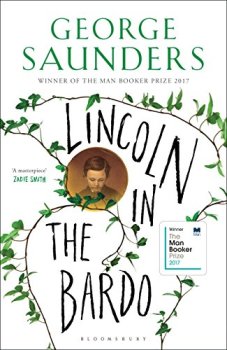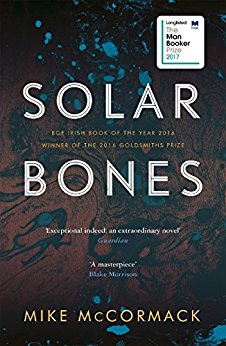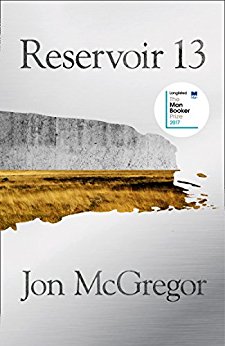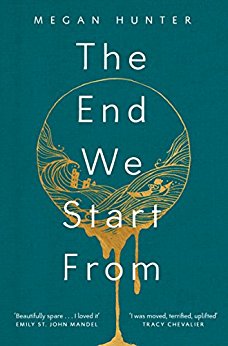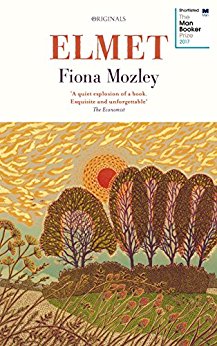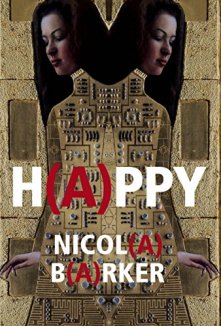This post is about a play and two books.
The Play

Firstly, I went to see Yerma at NT Live. Yerma is my favourite play from Federico García Lorca’s ‘Rural Trilogy’, and I had been longing to see Billie Piper play the eponymous heroine for over a year. Instead of going to the Young Vic, however, I decided to get tickets for National Theatre Live. I had done this once before and I will definitely be doing it again. I will even argue that the experience is better than going to the theatre itself; you get incredible close ups of the action without losing the immediacy of the theatre.
The director, Simon Stone certainly did justice to Lorca’s tragic play. Yerma – which means ‘barren’ in Spanish – is a play about a childless woman and her increasing desperation. A tragedy in three parts, the audience watches Yerma move from optimistic newly wed through despair, desperation and insanity as her longed-for child never arrives. Stone set his play in contemporary London, suggesting that issues of reputation, image and peer pressure are just as repressive as the emphasis placed on honour and family in 1930s Spain. Some critics complained that failed IVF treatment is definitely not comparable to the oppressive, patriarchal society of Lorca’s time, but I felt Stone cleverly translated the emotions of the original play to a modern context.
We see Yerma and her husband, John – played by Brendan Cowell – move into their new home in Marylebone, succeed in their respective careers, and joke ironically about patriarchy and feminist issues while their friends give up their freedom to start families. When Yerma fails to get pregnant, the cracks begin to show; the rest of the play charts her descent into madness.
Some scenes were particularly shocking, and Stone took Lorca’s naturalism to new levels. The stage design was stark and pared back: white walls, empty boxes and a garden were more than enough to symbolise the protagonist’s empty womb. The dialogue was often amusing; yet there were some particularly powerful monologues. While Lorca’s lyricism was abandoned in favour of more realistic discourse, there were nevertheless some poetic scenes, such as a particularly haunting series of snapshots from a muddy Glastonbury.
The acting was exceptional, especially when you consider quite how many times Piper and Cowell must have performed since the play was first shown in August 2016.
Yerma is an unforgettable production and I am thrilled I got to see it ‘live’ in this special way. (*Update: I drafted this post in September when I saw the production, but I fear it may no longer be in theatres..)
Book Number 1: The Growing Season
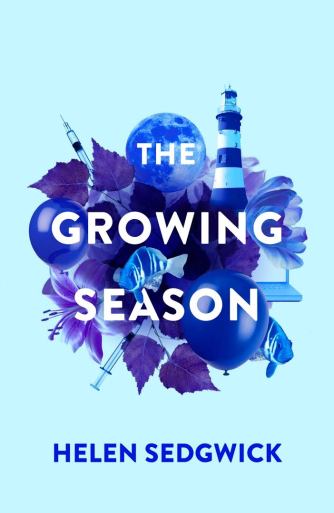
I still can’t stop thinking about Helen Sedgewick’s The Growing Season, a work of speculative fiction set in an all too possible world where babies are gestated artificially in womb-like incubators. The concept is even more shocking when you consider that these ‘pouches’ are already being trialed in labs for use in exceptional cases, and the book seems both otherworldly and remarkably familiar. The premise of the pouch is to advance gender equality; women no longer have to bear a child for nine months and the duties of parenthood can be split equally between both partners. The pouches can also be attached to the body, offering every individual the opportunity to experience the wonder of carrying a baby.
However, despite the many advantages of the pods, the inventors’ good wishes backfire. Not only do men cease to treat women with respect, but an unanticipated mutation leads to widespread reproduction problems. The story follows a group of individuals who decide to delve deeper into FullLife, the corporation behind the pods, rocking the supposed utopia it claims to have created.
The Growing Season is a compelling read which has you questioning science, technology and religion as much as gender, sexuality and power.
Book Number 2: Little Fires Everywhere
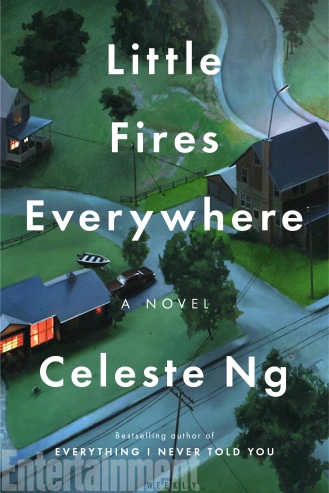
I could have added Little Fires Everywhere to many of my lists but I feel it’s most appropriate to put it alongside these two powerful pieces on motherhood. Celeste Ng’s second novel is an enthralling story about family, privilege, and the many different ways of bringing up children.
Elena Richardson has her life under control: career, husband, house, children. Everything is perfect until Mia Warren arrives in Shaker Heights, Ohio. A single mother to protagonist, Pearl, Mia is an enigmatic artist who will do any number of demeaning jobs to fund her passion, and a woman who cares remarkably little about what anyone thinks of her. While Pearl longs to be a part of Elena’s seemingly-perfect family, Mia’s liberal attitudes begin to influence the Richardson children, leading them to question their mother’s ferocious control and obsession with appearance.
In the opening pages the reader learns of the tragedy that will shatter Elena Richardson’s illusion of perfection; the mystery will slowly unfold over the course of the story. Ng’s writing is as strong as her plotting and compassionate insights into each of the characters demonstrate the effects of delusion, desire and the need for attention.
I read Little Fires Everywhere in one sitting, off sick from work, and I hope you will also be able to immerse yourself in the story. (It’s a good holiday novel!) It’s a difficult book to put down, and most deserving of all the praise it has received so far.

